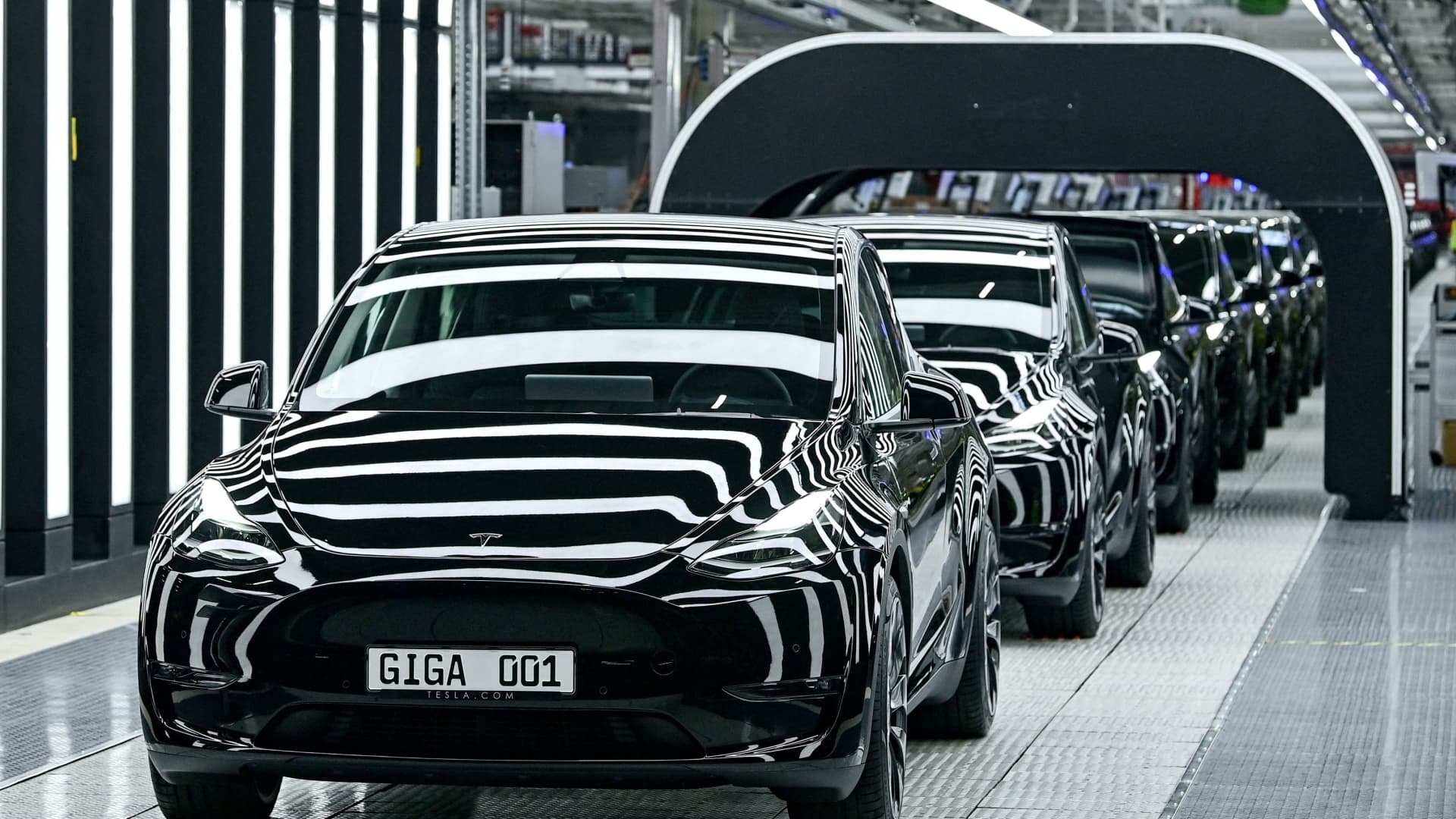
The global automotive industry is in transition, as consumers increasingly shun internal-combustion-engine vehicles for electric ones. It means EVs are grabbing a bigger slice of the global auto market, according to French investment bank Societe Generale , with one-third of cars sold in China now electric. The “sharp acceleration” in EV take-up in Europe has propelled market share to “well above” 20%, analysts at the bank noted, and while adoption in the U.S. is rising slowly, EVs now account for a more than 20% share of the market in California. An ecosystem — comprising automakers, battery manufacturers, lithium producers, and more — has emerged alongside this transition, providing investors with a wealth of options to cash in on this booming industry. And while automakers may be an obvious play, Societe Generale believes investors should also consider putting their money into commodity and semiconductor names. The bank noted that EVs require far higher quantities of minerals, such as lithium, nickel, cobalt, and graphite, while EVs use twice as much semiconductor content as their conventional counterparts. The bank’s “Battery Electric Vehicles Basket” comprises several stocks across the EV supply chain, including automakers Rivian , Lucid and Li Auto . Contemporary Amperex Technology (CATL), Panasonic , Samsung SDI and Tianqi Lithium are among the battery names in the basket. Within the materials space, lithium producer Ganfeng Lithium , lithium products manufacturer Livent and Australian lithium miner Pilbara Minerals also made the bank’s cut, while Infineon Technologies and STMicroelectronics were among the chip stocks to be included. Traditional automakers such as Mercedes , BMW and Porsche were also in SocGen’s basket of stocks. A $300 billion opportunity Investment bank Bernstein, meanwhile, has identified a raft of stocks it thinks will benefit most from the influx of Chinese EVs into Europe. “Chinese brands were seen as of poorer quality, both domestically and abroad. The narrative has changed in recent years, however, as the world set its course towards electrification,” the bank’s analysts, led by Eunice Lee, wrote in a note on Mar. 9. “More than ever, China-made EVs are competitive on quality and deliver value-for-money. This may be the opportune moment for Chinese EV brands to knock on the doors of Europe.” Bernstein believes there is a massive opportunity in Europe, estimating that the region’s EV market will grow to $300 billion by 2030 from $50 billion today. “Given the capability set, product line-up and global ambitions of Chinese [original equipment manufacturers], this is too good of an opportunity to pass up,” it said. Among the Chinese EV makers, BYD, Nio and Xpeng are “the ones to watch,” according to Bernstein. The bank also likes two Chinese-owned European brands: Geely -owned Volvo and SAIC Motor -owned MG Motor. Bernstein highlighted Renault , Stellantis and Volkswagen as the European automakers “most at risk” from rising Chinese competition in Europe. “We expect Chinese EV players to find better success targeting the compact, mass market EV segment that has so far been under-penetrated in Europe,” the bank said. Tesla and under-the-radar plays Tesla is one of Deutsche Bank ‘s top picks in the EV space. ″Among EV makers, we believe that Tesla’s bullish thesis remains intact despite an investor day lacking some specifics, with line of sight into growing volumes near 50% this year and a path to deepen its competitive moat and demonstrate its lead in the space with the introduction of its next-gen platform in the years ahead,” Deutsche analyst Emmanuel Rosner wrote in a note on Mar. 13. Jefferies , meanwhile, has three under-the-radar plays to tap into the global EV boom: welding products manufacturer Lincoln Electric Holdings ; painting equipment maker Graco ; and industrial adhesive firm Nordson . These are the three companies that will benefit as EV spending ramps up worldwide, analyst Saree Boroditsky said to clients in a Mar. 8 note. Lincoln Electric designs and manufactures EV chargers, Graco develops sealing and bonding applications for electric vehicle battery pack and module assembly, while Nordson designs thermal dispensing applications for EVs. — CNBC’s Michael Bloom and Sarah Min contributed to reporting
